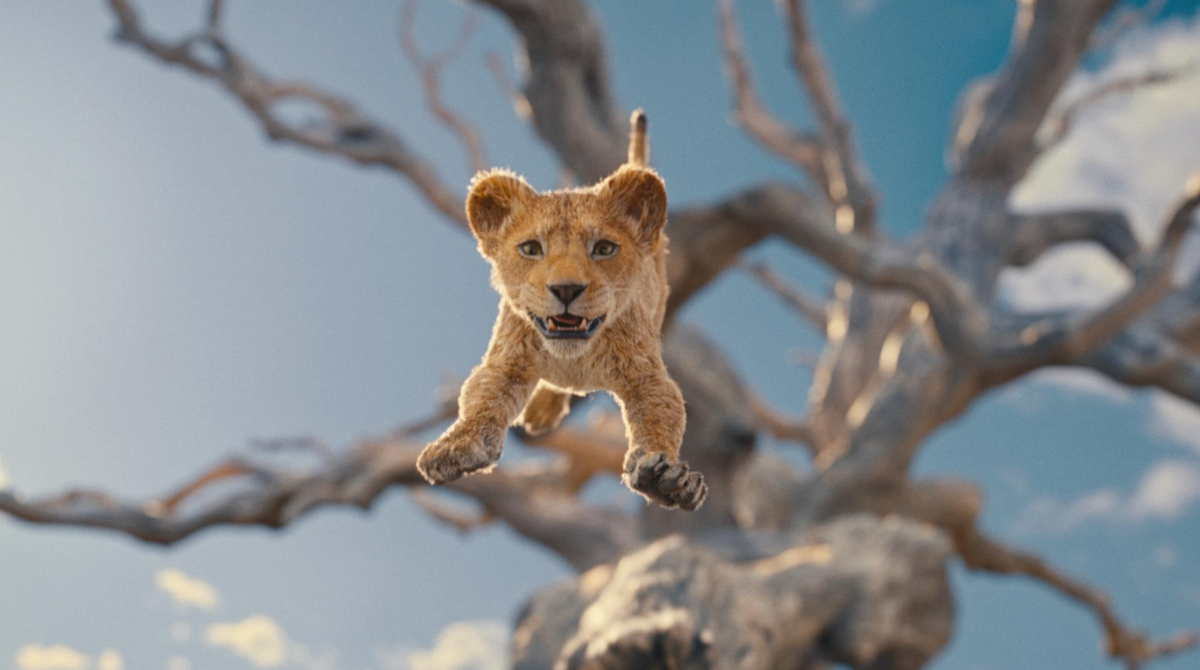
IMDB
 Ever wondered how Pride Rock gained its iconic shape? Or how Rafiki acquired his famous cane? Probably not. Nonetheless, “Mufasa: The Lion King” seeks to provide answers to these and a number of other never-before-asked questions pertaining to Disney’s 1994 masterpiece “The Lion King.” This lack of necessity is one of several symptoms of the serious case of prequel-itis that this movie suffers from. The affliction also manifests in heedless attempts to reference every single well-known line, event and character from the original movie, despite this endless incorporation creating several continuity errors. With the severity of this malady, as well as many other issues, the movie ultimately fails to commit solely to its prescribed role of prequel.
Ever wondered how Pride Rock gained its iconic shape? Or how Rafiki acquired his famous cane? Probably not. Nonetheless, “Mufasa: The Lion King” seeks to provide answers to these and a number of other never-before-asked questions pertaining to Disney’s 1994 masterpiece “The Lion King.” This lack of necessity is one of several symptoms of the serious case of prequel-itis that this movie suffers from. The affliction also manifests in heedless attempts to reference every single well-known line, event and character from the original movie, despite this endless incorporation creating several continuity errors. With the severity of this malady, as well as many other issues, the movie ultimately fails to commit solely to its prescribed role of prequel.
Rafiki (John Kani) tells the story of Mufasa (Aaron Pierre) to regale the lion’s granddaughter, Kiara (Blue Ivy Carter). Despite being two of Disney’s most well-loved characters, the movie’s fruitless attempts to use Timon (Billy Eichner) and Pumbaa (Seth Rogen) as comedic relief renders them aggravating and, frankly, unbearable. The constant interruptions of the plot with tragically unfunny jokes and distracting fourth wall breaks were clearly intended to engage and entertain younger audiences but ultimately detract from the movie’s quality as a whole. The only laughs the movie garnered were my pitiful chuckles at the fact that I wasted a Thursday night watching the trainwreck in front of me unfold on the big screen.
You might be asking yourself why I even endeavored to watch this, seeing as it’s widely agreed that Disney has lost its magic, only churning out increasingly disappointing and derivative content in recent years. If I’m being honest, I did not have high hopes walking into this movie, but the appeal of the cast — boasting the likes of Beyoncé as Nala and Donald Glover as Simba, as well as the original soundtrack by Lin Manuel Miranda — was irresistible. Unfortunately, this was a grave mistake.
The soundtrack completely derailed after only the first two tracks, as the lyrics began to feel like ChatGPT was given a list of rhyming words to weave into a litany of forgettable and frustrating songs performed without even the slightest revision. If an award is in sight for this movie, it’s to laud it for having the least intimidating and most infuriating villain song of all time, “Bye Bye.” Equally perturbing was “I Always Wanted a Brother,” with the exasperating repetition of the titular refrain sung by an incomprehensibly British lion.
The nonsensicality of the sole British lion, this singular vocal distinction between Taka (whose name, unbeknownst to me for the first half of the movie, is actually not Tucker) and Mufasa was, unfortunately, a necessity. The photorealistic animation meant that not a single lion was distinguishable, rendering the story incredibly difficult to follow. But don’t worry — to compensate for the identical appearances of the characters, their names are tacked onto every line of poorly written dialogue. This way, you’ll have no trouble following the brazenly formulaic plot as it devolves into countless predictable showdowns, which should be high-stakes but simply serve to remind you that you are completely impartial to every character.
The voice acting might have been the best part of the movie, though it was still only satisfactory at best. Unfortunately, James Earl Jones’s original performance as Mufasa is an unsurpassable one, and the movie being dedicated to him felt like a rather cruel disgrace to his legacy. “Look at the stars. The great kings of the past look down on us from those stars.” This first line was certainly poignant and I was initially prepared to witness a beautiful homage to the late actor — but alas, this was naught but a ruse.
The skill required of the animators to produce such photorealistic imagery should not be overlooked, and the setting admittedly looked beautiful, even if the proximity of such a sheer number of vastly diverse biomes was somewhat illogical. However, this new wave of lifelike animation of animals is tragically discomfiting and bereft of the sentimentality Disney’s hand-drawn originals offer.
Given the number of fights depicted, there is a disproportionately minimal amount of blood, yet the movie still manages to trigger some queasiness for the faint of stomach as a result of some seriously weird positioning of the camera. At times, the audience takes on a GoPro-esque perspective, inducing a nauseating effect wherein the animal’s head is completely still while the background blurs. Other scenes situate the camera atop the lions’ backs so their shoulders sway sickeningly before your eyes.
Whatever low expectations you might already have for the current crop of prequels and sequels Disney is churning out, this movie is sure to disappoint you in ways beyond imagination. If you possess even an ounce of respect for the original movie, steer clear of “Mufasa: The Lion King.